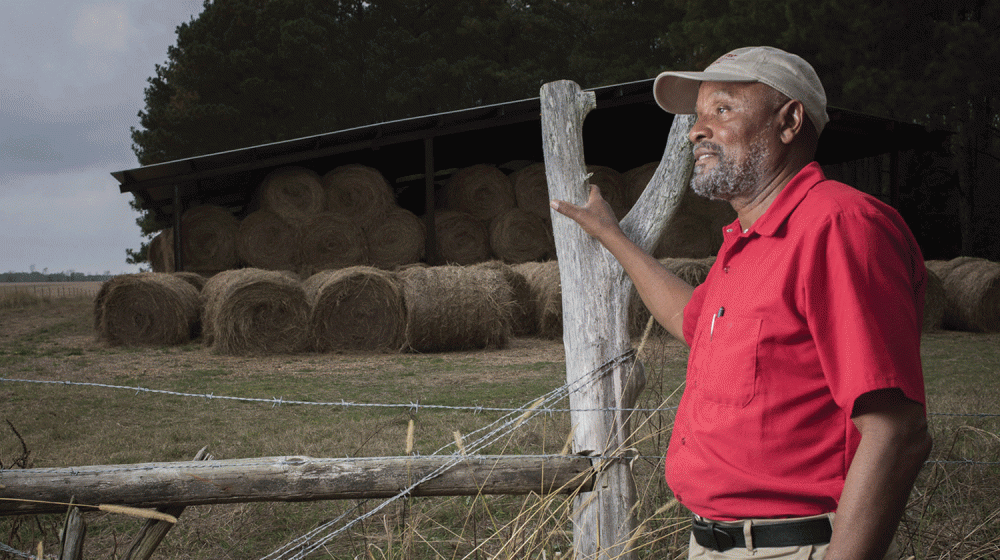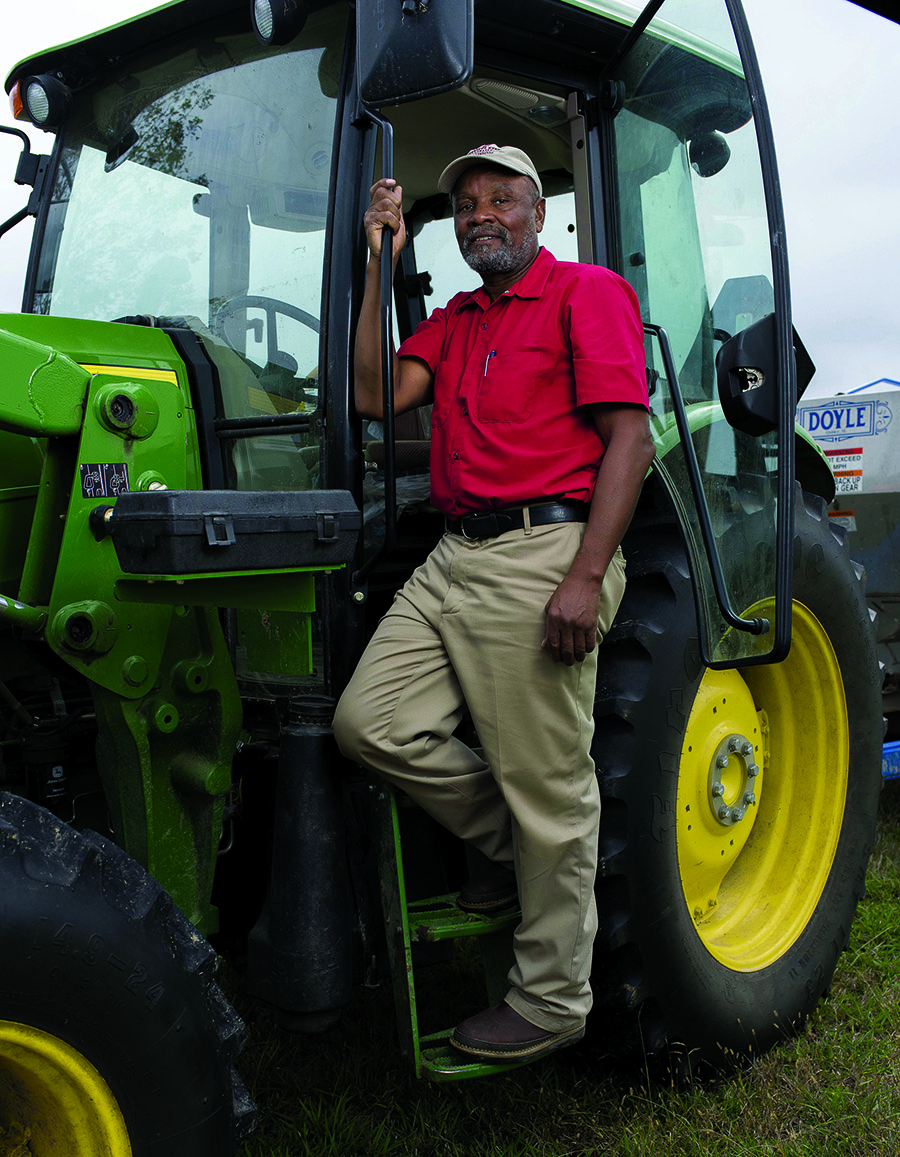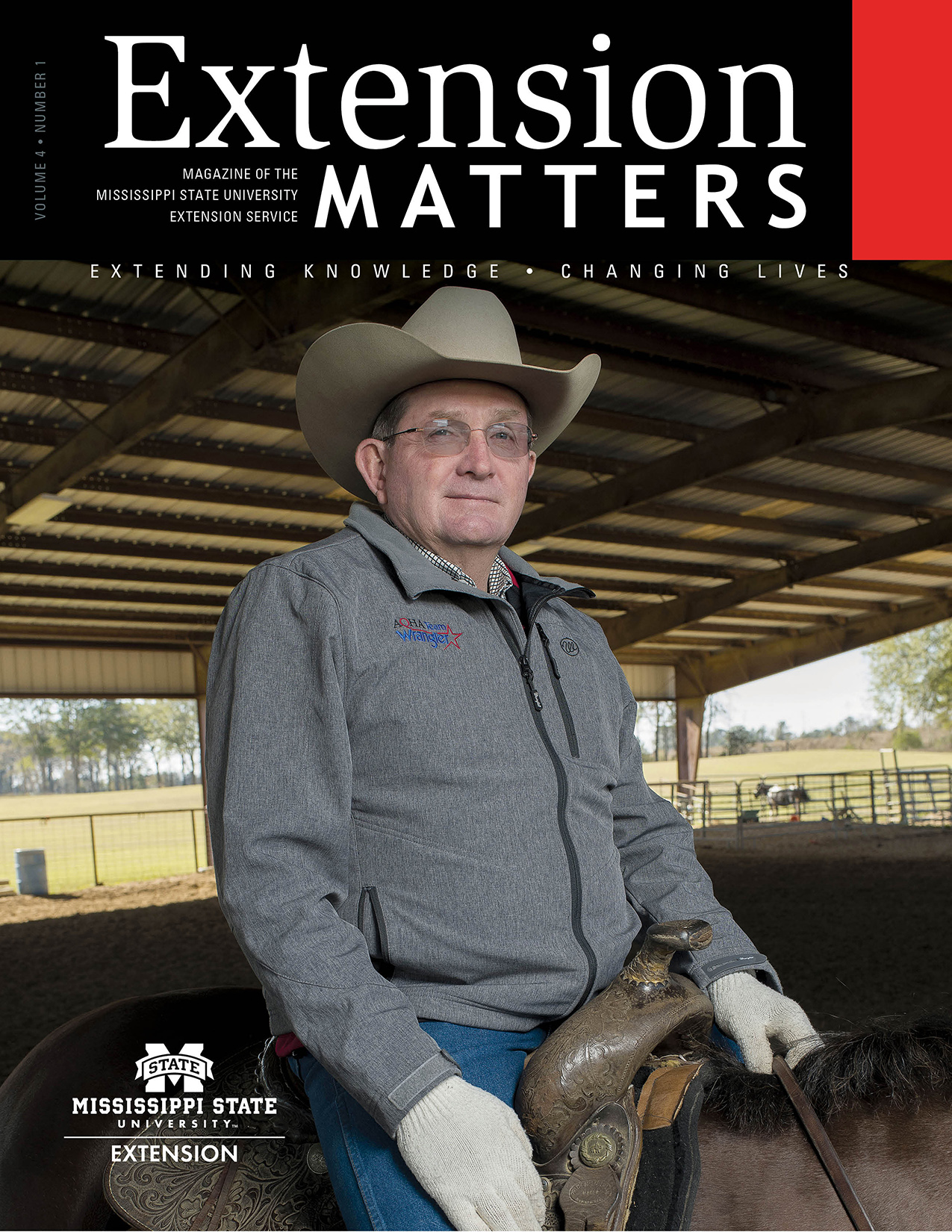Coming Full Circle

Trucker Discovers Profitable Pastime
Story by Leah Barbour · Photos by Kevin Hudson
From a young age, Willie Clay understood that farm work was hard work. He got up early to milk the cows at his dad’s Monroe County farm. He lugged square hay bales, approximately 50 pounds per bale, through the fields to feed the cattle. He helped in the soybean, corn, and cotton fields.
So Clay decided, at 8 or 9 years old, that he would never be a farmer.
He grew up, went to college, and graduated with a bachelor’s degree in business administration. He led and supervised retail management workers at three stores over 7 years in Memphis, Tennessee. Then, Clay’s initiative and determination led him to a new industry.
“I always wanted to work for myself; being an independent business person just interested me,” he laughs. “I figured I would start little by little, and I would manage my money. I would build my business slowly, instead of overreaching.
“You can help other people. In turn, you benefit from it in many different ways. I knew it wasn’t going to be easy, but it takes determination to reach this level of success. That’s what helped me. It all has to come together.”
WILLIE CLAY
“I drove a truck in college, and my brother was in the trucking business. So I decided trucking was for me. I came back to Mississippi, and I got to traveling and hauling livestock,” Clay remembers.
Driving Toward a New Career
He established Willie Clay Trucking and spent 15 years hauling livestock around the country. During those years, he learned from the cattle producers he served.
“I like to take advice from other people in businesses that are making money, and what I learned is, lots of things have changed in cattle farming,” Clay observes. “One man can farm more land than 50 years ago. The equipment, the technology, and the medicine has all changed. We can do a much better job raising better-quality cattle and cutting down on our losses.”
As Clay began to realize that he could not drive a truck forever, he also began to consider what he might do in retirement. Based on what he’d learned hauling livestock, Clay decided cattle farming would be a profitable way to retire.
He’d inherited 20 acres from his father’s Monroe County farm, but he knew he wanted a bigger tract of land. He found the perfect place in Clay County, including almost 250 acres. However, they were enrolled in the Conservation Reserve Program (CRP). Converting the property for cattle production and ending the land-conservation program, sponsored by the U.S. Department of Agriculture, requires several steps.

“I had to take it out of CRP to raise cattle. I needed knowledge and resources, so I contacted the Mississippi State University Extension Service because they had what I needed,” Clay says. “So I went to talk to Extension in Clay County. The county coordinator, Perry Kimbrough, came out and helped me plan. We developed a great relationship. I told him where I grew up, and Perry said he had worked with my dad. Knowing he had helped my dad gave me a kind of warm feeling.”
Kimbrough helped Clay work with USDA and the Natural Resources Conservation Service to convert his acreage for cattle production. While Kimbrough retired a few years ago, Clay has developed another strong relationship with a new county Extension agent, BJ McClenton.
McClenton has assisted Clay in controlling weeds, killing vines, and selecting forage crops. Clay, who is still trucking, has a successful cow-calf operation with approximately 100 head at his West Point farm.
Farming with Extension
During his first year producing stocker cattle, many of Clay’s calves were dying. Extension helped him figure out why and recommended a treatment plan.
“After I turned that around, I haven’t had any problems since,” he says. “When things are not working, you’ve got to be willing to change. I talked to Mississippi State Extension. I was willing to change, and this year has been one of my best years in profitability.”
One of his priorities, now, is to share what he’s learned with other cattle producers.
Since 2014, Clay has hosted three field days at his farm. McClenton worked to staff the field days with experienced, knowledgeable veterinarians and Extension Forage Specialist Dr. Rocky Lemus, an associate Extension and research professor.
“BJ went above and beyond the call of duty; that’s just the way he is,” Clay observes. “I’m thankful for Extension helping us out. The hands-on meetings make a big difference. It’s one thing to watch somebody, but, when you do it yourself, it sticks with you. When a cattle producer can actually give shots himself, he can prevent the various diseases, and it’s so much easier.”
While retirement is still in Clay’s future, he’s enjoying cattle farming at his beautiful Clay County property. He likes it so well, in fact, that he’s considering renting more acres and expanding when he does retire.
“The support I’ve had from Extension, from family, from neighbors, from other farmers and organizations: it’s a blessing from God,” he says. “I make myself available to other people because it’s a good feeling when you go out there and help somebody else.
“You can help other people. In turn, you benefit from it in many different ways. I knew it wasn’t going to be easy, but it takes determination to reach this level of success. That’s what helped me. It all has to come together.”

